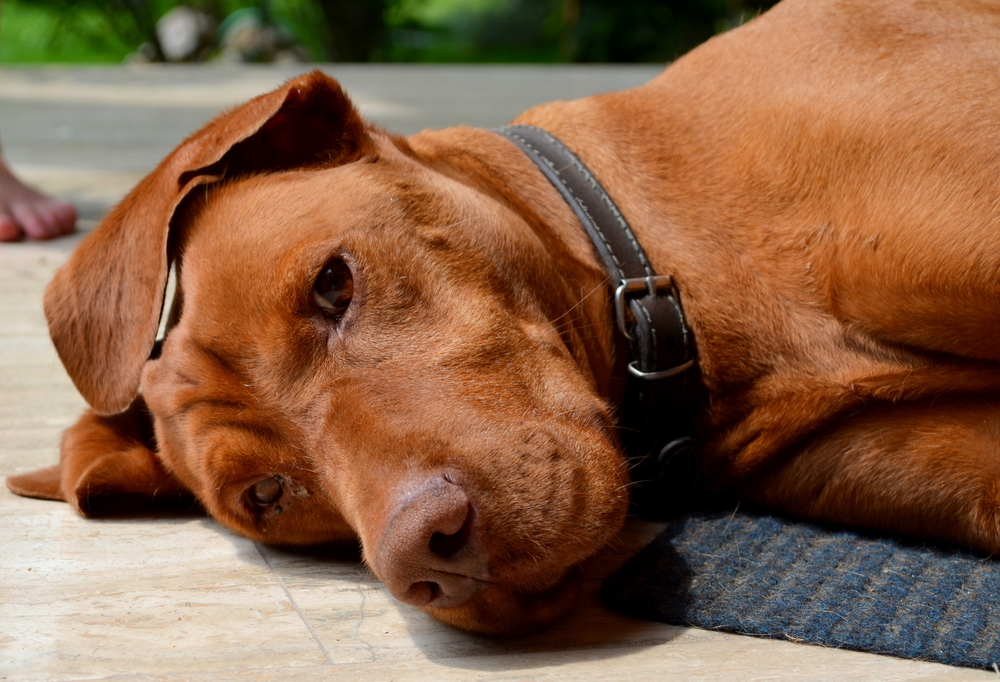If you have recently seen your dog coughing after drinking water, Kennel Cough might be the reason. Whether you are a pet parent to a Doberman or a Chihuahua, this situation affects dogs of all breeds and ages. Luckily, in various cases, it will be settled on its own or with some antibiotics for kennel cough. However, puppies, older dogs, and those with weak immune systems might need more than just a cough censor for dogs. So, how do you make sure your dog is in the clear? In this article, we will first talk about Kennel Cough symptoms and Kennel Cough treatment and then prevention. We know you want your pets to be protected. Kennel Cough, also called Canine Infectious Respiratory Disease (CIRD), is a highly infectious respiratory illness in dogs.
Table of Contents
Toggle
Caused by different viruses and bacteria, symptoms are different depending on the particular pathogens included. Dogs of all ages can be affected by this. Additionally, Kennel Cough can be noticed in particular conditions and outbreaks. Dogs limited in places such as kennels, shelters, and dog shows are more likely to contract Kennel Cough. Many of the dogs particularly experience mild to average symptoms. However, puppies, weak dogs, or those with common diseases, may cause serious complexities. These could include bronchopneumonia, which can then lead to complicated breathing, weight loss, fever, and even death.
Symptoms Of Kennel Cough In Dogs
The most basic symptom of kennel cough is loud coughing accompanied by gagging. The cough is mostly similar to a goose-honking and is sterile. Your dog’s throat might be so sensitive that delicately rubbing the throat part could be sufficient to get coughing. The cough frequently gets worse with activity, and often the gagging can get so hard that your dog pukes froth. However, there are conditions where a dog can have a kennel cough without a cough. In those cases, they might easily sneeze a lot or have runny eyes or a runny nose. If the disease becomes more serious, causing pneumonia, other symptoms might rise, like:
- Fever
- Productive cough
- Loss of appetite
- Weakness or lethargy
- Labored breathing
If you see any of these serious symptoms, talk to your veterinarian right away. In some conditions where the illness is caused by distemper, you may see other serious symptoms such as diarrhea, vomiting, or even neurological signs such as circling when walking or head tilting. This is mainly only a problem in non-vaccinated dogs and puppies, which is why staying updated on vaccines is most important.
Treatment Of Kennel Cough In Dogs
The treatment your veterinarian suggests will depend on how serious your dog’s illness is and what is causing it. For some fewer cases, your veterinarian might just suggest rest, plenty of fluids, and time for the disease to get better on its own. Healthy dogs may not require any medicine. Other possible treatments include:
- Cough suppressant suggestions if your dog is coughing so much that they can not rest.
- Nonsteroidal anti-inflammatory medicines to decrease fever and inflammation in more serious conditions.
- For pneumonia, dogs may require hospitalization, IV medicine, fluids, and oxygen therapy.
- Antibiotics for cases caused by bacteria such as Bordetella.
As you are aiding your dog in recovering, do not use a non-prescription human medicine on your dog, since many of them are harmful to animals. Talk to your veterinarian and only use medicines they suggest.
Prevention For Kennel Cough In Dogs
Because kennel cough has a lot of causes, it can be hard to prevent it properly. But there are some steps you can take –
Vaccinations
The best way to prevent your dog from experiencing kennel cough and spreading it to other dogs is via updated vaccinations. These are important. While they may not stop each potential infection, they can decrease the disease’s acuteness and the chances of your dog raising pneumonia. Vaccinations that can aid in preventing kennel cough include core vaccines that are important for all dogs and some non-core vaccines that are suggested based on lifestyle or risk.
Other steps to reduce risk
You can take other steps to reduce the risk of your dog catching kennel cough even though these steps would not remove the risk completely.
Do not let your dog use toys, food, or water bowls associated with other dogs that are not part of your household.
See the news on outbreaks of kennel cough and avoid traveling to places or locations where it is appearing.
If one of your dogs has kennel cough, keep them separated from your other dogs.
FAQs
How long does a kennel cough last without any treatment?
In most situations, dogs will recover from kennel cough without any treatment in three weeks, but it can often last for anything up to around six weeks.
Can kennel cough cause vomiting? Explain.
The most common symptom is a continuous cough either dry and hacking, or like a loud honk. In some conditions, kennel cough can also cause vomiting, gagging, sneezing, a runny nose, and eye discharge.
Can a dog get over a kennel cough without any medication?
Frequently, additional treatment is not important. Some dogs may require antibiotics, if they have signs of a bacterial upper respiratory infection, such as lethargy, green-yellow nasal drainage, or reduced appetite. Luckily, kennel cough is treatable and mainly solved after 10 to 14 days of rest.
How do you take care of a dog who has a kennel cough?
Many of the dogs are better on their own, but some require treatment from a vet. Dogs with kennel cough should stay away from other dogs and public places while they are presenting symptoms and for two to three weeks later, as this is where the spread is the most basic thing.





